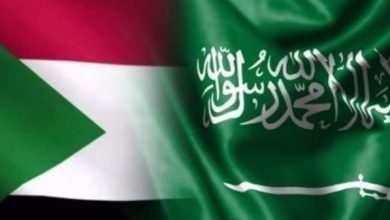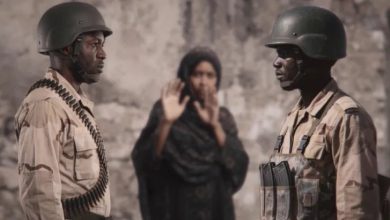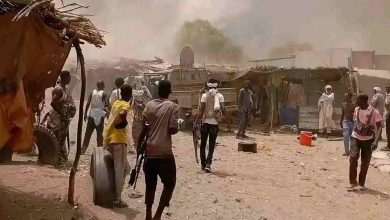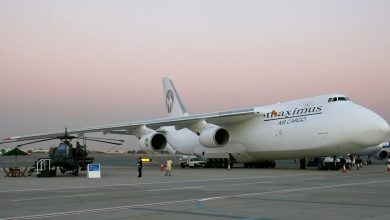In an Investigative Report on Sudan News: Debunking Allegations Against the Army Regarding the Killing of Civilians in Halfaya
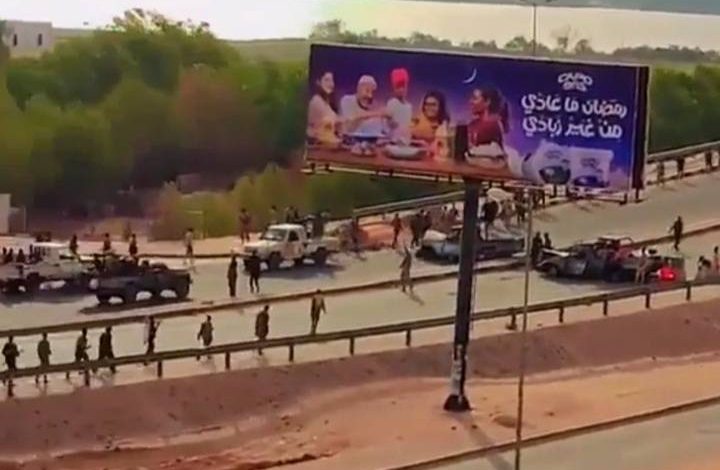
Report – Sudan News
The (Sudan News) website investigated the claims about the army killing civilians. Through videos and audio clips obtained, it was revealed that no civilians were killed. The videos shared about the house in Halfaya showed that it was a military barrack for the Janjaweed militia.
The Truth
Ahmed Mustafa Hamad Al-Hussein, the son of the owner of the Halfaya house, responded to the allegations accusing the army of killing civilians associated with one of the religious sites in Halfaya: “The house is ours and was occupied by the Rapid Support Forces rebels; it was not a religious site. The second house belongs to our uncle, Mr. Mustafa, and the neighboring house is owned by Dr. Taj Al-Din Al-Malik, who lives in Saudi Arabia. The first house, which Rasha Awad and other Progress agents claimed was the site of killings, was shown in videos to have been occupied by the rebels who broke the living room wall, connected the houses, and brought in vehicles and cannons. The Rapid Support Forces militia expelled us from our homes, occupying them. They turned our uncle Mustafa’s house into a kitchen, and Dr. Taj Al-Din’s house was assigned to one of the rebel leaders. They destroyed and looted Major General Ahmed Al-Hassan Diab’s house. Our homes were not religious sites, and those who occupied them were not civilians but criminal militia forces. We have videos and photos proving that our homes were turned into military barracks, not religious sites in any way.”
Army’s Response
Observing the operations, one can see the joy that accompanies the army’s entry into any area. The citizens’ unity with the army troubles those who oppose national unity. It is also known that the army adheres to the rules of engagement according to international standards, which is why the liberation of Sudan from these thugs and their political wing’s hunting dogs has been delayed. The army’s spokesperson, Brigadier General Nabil Abdullah, stated, “The claims about the army’s involvement in the killing of humanitarian volunteers in the Bahri area are just lies and fabrications propagated by the militia and their political allies.” Nabil accused the Civil Democratic Forces Alliance, “Progress,” of being behind the campaign, which he said targets the Sudanese army. He pointed out that this alliance adopts the lies of the rebel militia—referring to the Rapid Support Forces—while ignoring the violations and atrocities committed by their allies in the terrorist militia of the Al-Dagalo family, all while spreading falsehoods about the armed forces.
Government’s Progress
Her Excellency Howaida Ali Awad Al-Karim, Undersecretary of the Ministry of Justice and head of the Sudanese delegation participating in the 57th session of the Human Rights Council in Geneva, affirmed Sudan’s appreciation for the Universal Periodic Review (UPR) mechanism and the importance of cooperation with it. She pointed out that Sudan accepted the majority of the recommendations presented by the mechanism during its review in 2022, accepting 244 out of 283 recommendations, while noting 39 recommendations. This was stated during her meeting with Mr. Qayoom Naqeefa, Head of the UPR Department at the Office of the High Commissioner for Human Rights in Geneva.
She further affirmed Sudan’s commitment to advancing legislative reforms and aligning laws with international and regional agreements to which Sudan is a party. She emphasized the need for capacity building, especially in report writing, and the importance of prioritizing the rights of vulnerable groups, such as women, children, and the elderly, and focusing on transitional justice issues. She also briefed him on the current priorities imposed by the country’s situation, which involves systematic attacks and violations committed by the rebel Rapid Support Forces militia. These require strengthening procedural and legal systems as well as monitoring, documentation, and cooperation in combating crimes related to human rights and investigating gender-based violations targeting women and girls.
For his part, Mr. Qayoom Naqeefa, Head of the UPR Department at the Office of the High Commissioner for Human Rights, praised Sudan’s efforts in the UPR process and expressed his understanding of the challenges Sudan faces in fulfilling its commitments. He also mentioned the possibility of Sudan benefiting from the UPR Support Fund to implement the accepted recommendations.
